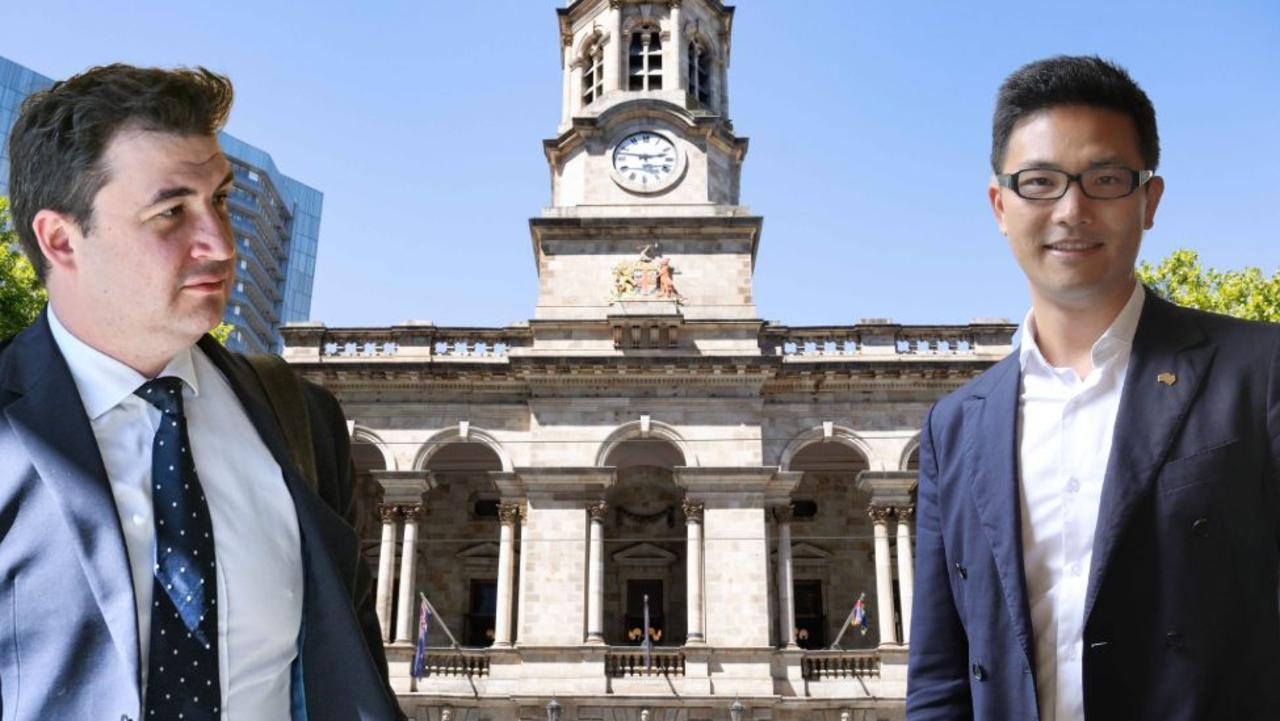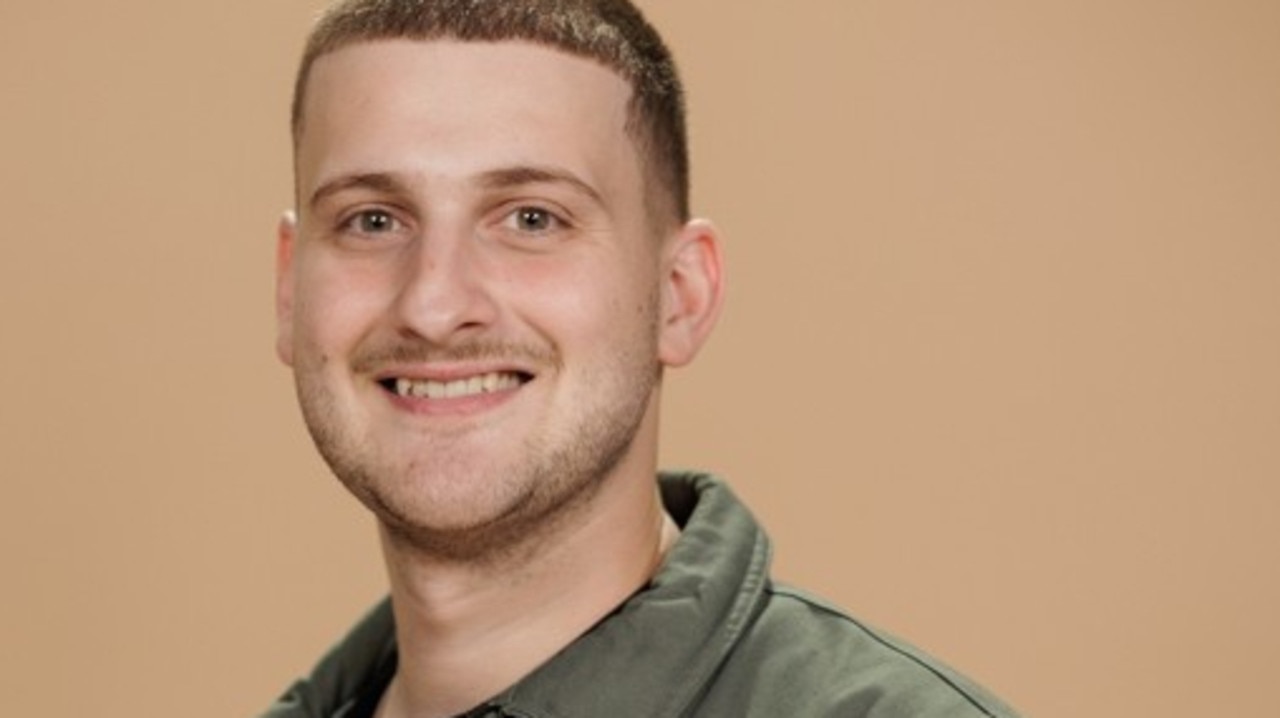‘My biggest fear is waking up to find my child unconscious’: Frankie Scutter’s life with type-one diabetes
This Adelaide family thought the sudden change in their daughter’s behaviour was a reaction to their new baby but it was something far more dangerous.
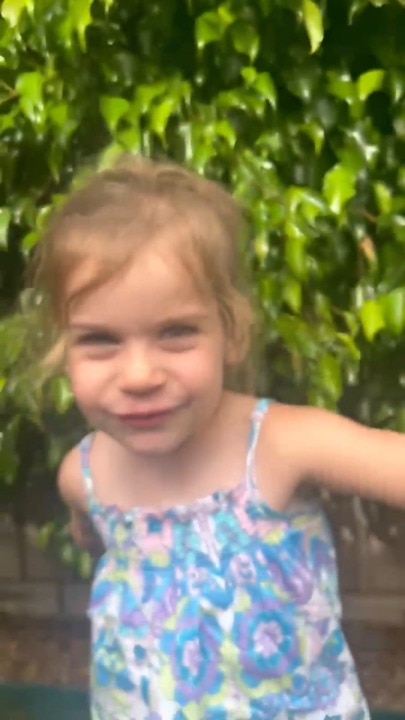
SA News
Don't miss out on the headlines from SA News. Followed categories will be added to My News.
For Cathryn and Sam Scutter, a good night’s sleep is hard to come by.
It isn’t simply because they have two children under three — a gorgeous three-year-old girl Frankie and a beautiful nine-month-old boy Lenny.
Seven months ago, Frankie received a life-changing diagnosis — type-one diabetes (‘T1D’) — and for her parents, missing an alarm alerting them to their daughter’s crashing levels can be the difference between life and death.
“My biggest fear is walking in her room and her being unconscious and we’ve slept through an alarm,” mum Cathryn Scutter, 34, told The Advertiser.
“Those are the real fears I have, what if I do not wake up to an alarm tonight?”

When Frankie is old enough to manage her own auto-immune condition she will be forced to make at least 180 extra decisions a day than your average person.
For now, her parents carry that burden.
“It is relentless … but we don’t want her life to be solely diabetes so we do our best to manage much of it away from her so she isn’t feeling the burden that we might be as parents,” Ms Scutter, who lives in Seaton, said.
It has inspired Mr Scutter, 37, to jump from a plane on February 16 to support finding a cure for T1D.
“(When I jump) I’ll be thinking of what Frankie and other people with T1D go through on a daily basis,” he said.
“In comparison, jumping out of a plane is nothing.”
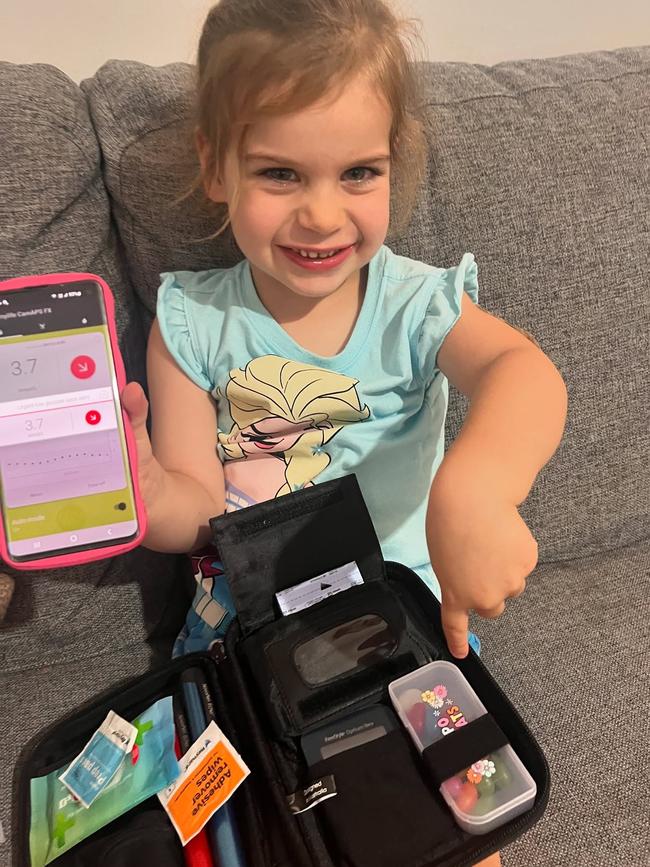
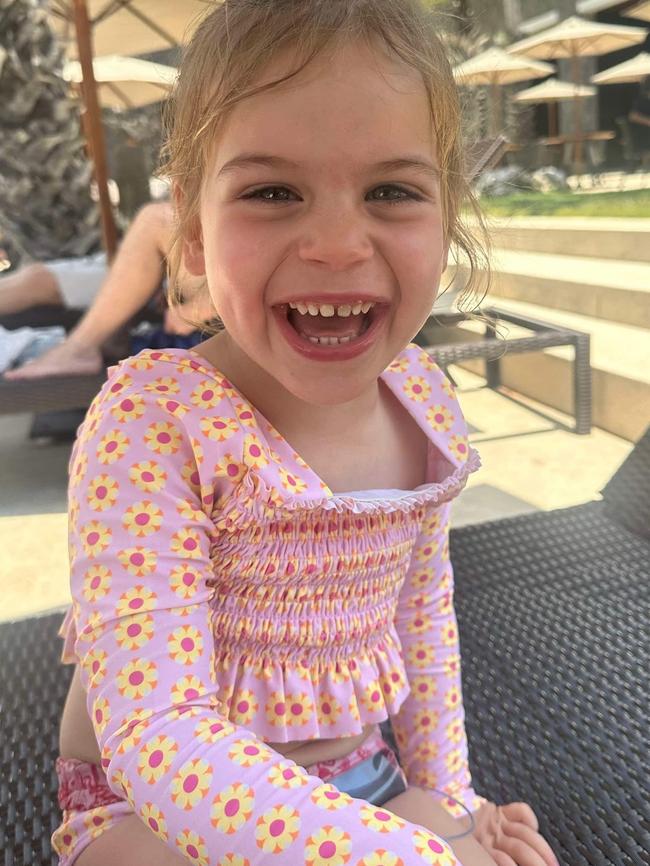
Eight weeks after the birth of her second child, Lenny, Ms Scutter began noticing Frankie going to the toilet more often — sometimes every five minutes.
“She was urinating overnight really heavily through her pull-ups, saturating the bed multiple times throughout the night, which she’d never done before,” she said.
“She was drinking a lot as well … we couldn’t quench her thirst, it was insatiable.”
Ms Scutter thought Frankie was regressing after the couple brought home Lenny — but the symptoms persisted.
“My gut was thinking there was more to it,” she said.
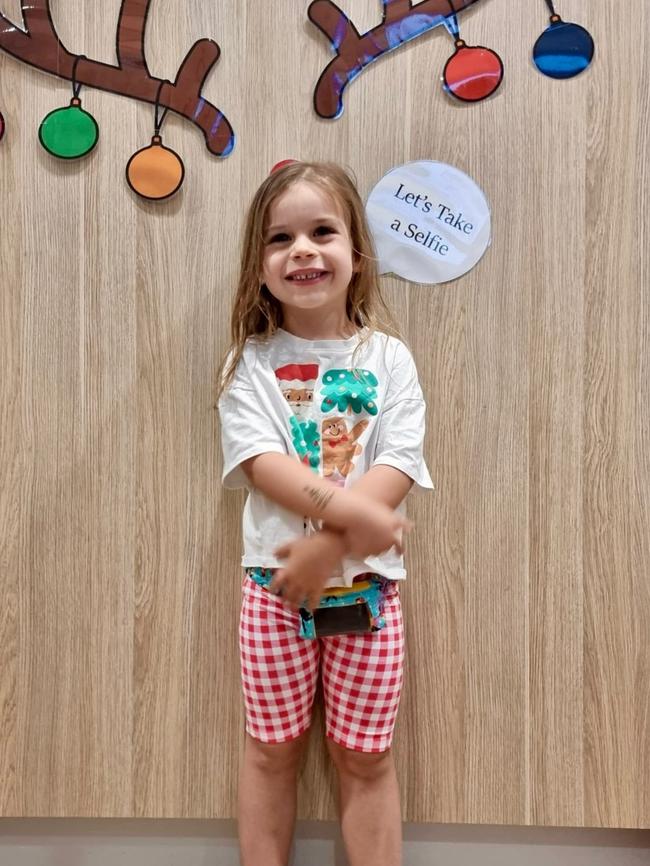
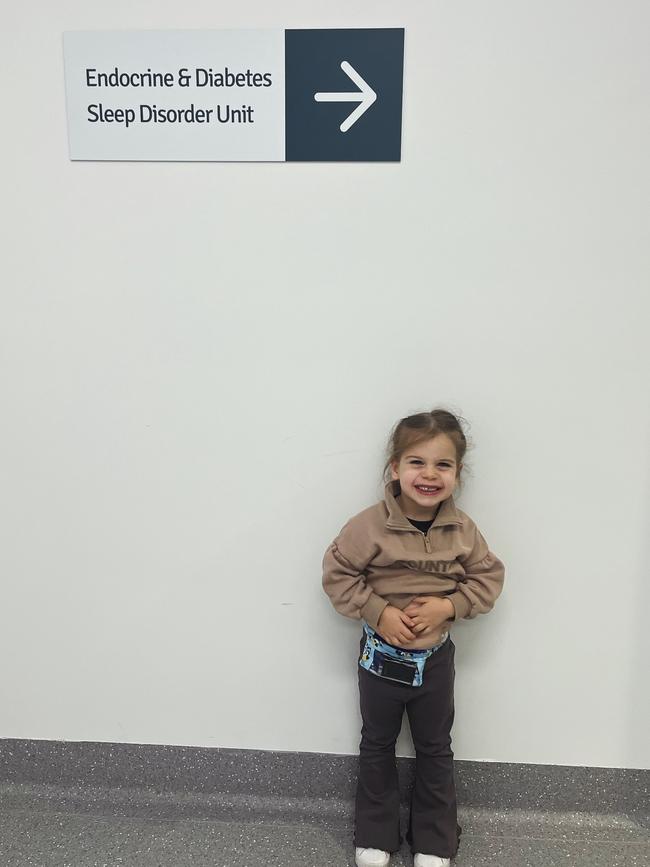
Eventually Frankie was diagnosed with T1D.
“It was a relief knowing I knew something was wrong but also I was so naive … I didn’t know how life changing it was going to be for her,” she said.
The doctor praised Ms Scutter for catching the four ‘T’ signs of diabetes early — toileting, thirsty, tired and thinner.
Since, the Scutter’s life has a large focus on managing Frankie’s T1D.
“Every time we leave the house we have to bring her kit,” Ms Scutter said.
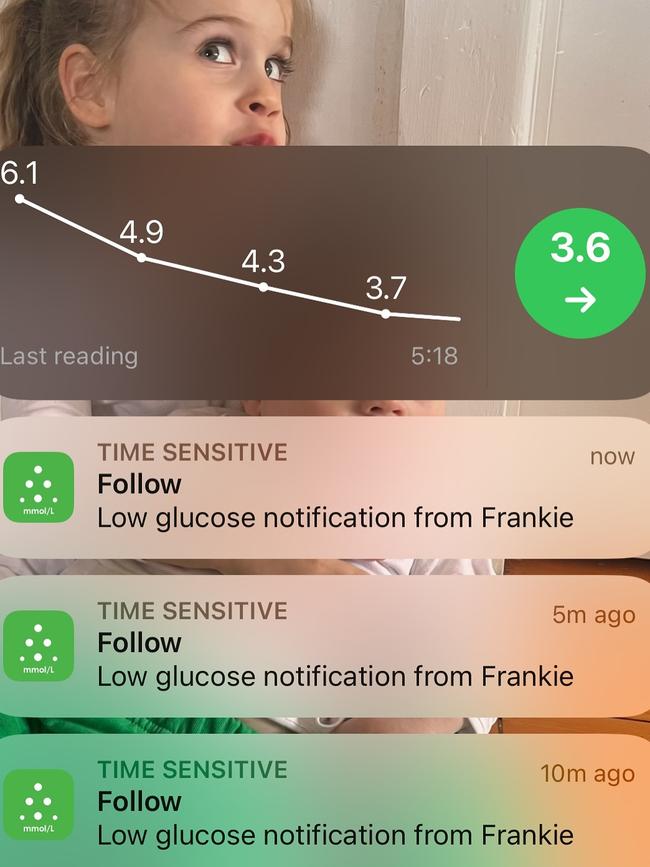
Ms Scutter has to decipher how many carbohydrates Frankie will be consuming and dose her with insulin prior to the meal.
She has to wait 15 minutes before eating.
“That’s really tricky with a toddler when they’re really hungry and they want something now,” she said.
Every 10 days, Frankie has to change the Dexcom sensor in her arm and every three days they must change her belly cannula.
There are protocols if Frankie has high or low blood sugar levels, sometimes she must attend hospital.
Currently there is no cure or any preventive treatment for T1D.
“Unfortunately this was always going to be Frankie’s path,” Ms Scutter said.
“People assume it’s because of dietary choices or poor diet habits or exercise but type one is an auto-immune condition.”
If you’d like to donate to finding a cure for T1D and supporting Mr Scutter as he jumps out of a plane, you can here.
More Coverage
Originally published as ‘My biggest fear is waking up to find my child unconscious’: Frankie Scutter’s life with type-one diabetes




